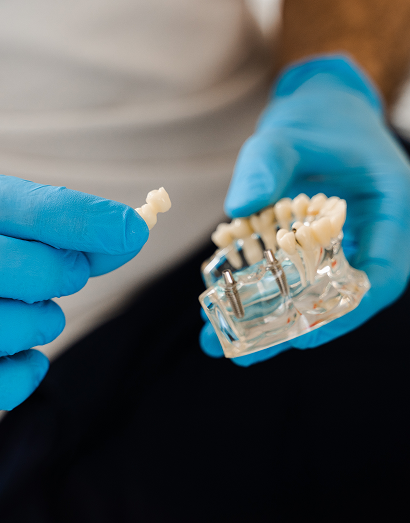
MK Periodontics and Implants Your Periodontist in Tacoma
At MK Periodontics and Implants, we focus on restoring periodontal health in the most gentle, non-invasive, and cost-effective way possible.

Our Affiliations




%201.png)

Why Choose MK Periodontics and Implants?
.svg)
Specialists
45+ years of combined expertise in gum health and dental implants.
.svg)
we focus on minimally invasive care that supports whole-body wellness.
.svg)
metal-free solutions for patients with sensitivities.
.svg)
clear explanations, multiple treatment choices, and ongoing support for long-term health.
We provide a full continuum of care - from early detection and prevention to comprehensive, successful treatment across all of our procedures.



Specializing in Dental Implants and Periodontal Health
We offer bruxism treatment, gum disease treatment, extractions, and more. As a periodontist near you, we help restore your smile and support long-term oral health.

While we strive to save your existing teeth whenever possible, our periodontists can
restore missing or damaged teeth with dental implants.

If you develop a broken gum seal, bacteria can enter and cause local and systemic harm. Your periodontist can restore gum health and reverse gum recession.
.png)
You may not recognize symptoms of gum disease until you have bad breath, your
teeth appear longer, gum disease damages your jaw
Hear What Our Patients Are Saying
MK Periodontics and Implants Your Periodontist in Tacoma
explain your treatment alternatives clearly so you can choose what's best, and we support you afterward with ongoing therapy to keep your mouth healthy for years. Our specialty practice offers dental implants, gum disease and recession care, extractions, laser treatment, and more. With 45+ years of collective experience, our periodontists in Tacoma, WA protect the natural gum seal using compassionate techniques that support your overall wellness.
Advanced Periodontal Care
We focus on restoring confident smiles while supporting your whole-body wellness. Our care is gentle, evidence-based, and designed around your individual needs. With advanced periodontal expertise near you and a true patient-first philosophy, we work to keep your mouth healthy and your overall health in balance for the long run.

.svg)
.svg)
.svg)
.svg)
.svg)
.svg)
.svg)
.svg)
.svg)
.svg)
.svg)
.svg)



.svg)

.png)
.svg)

.svg)
.svg)
.svg)
.svg)
.svg)

.svg)